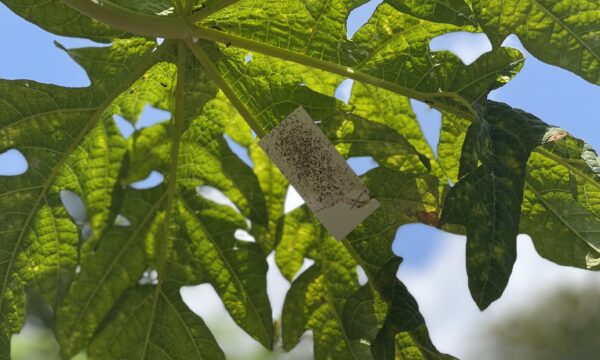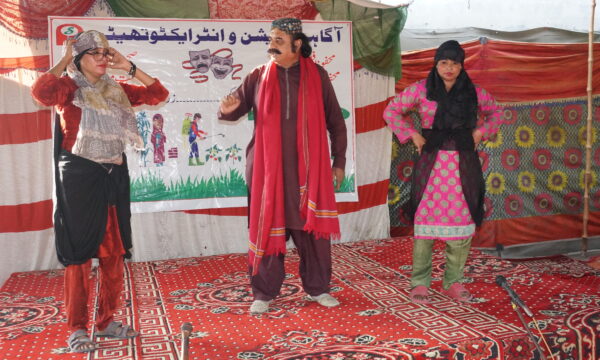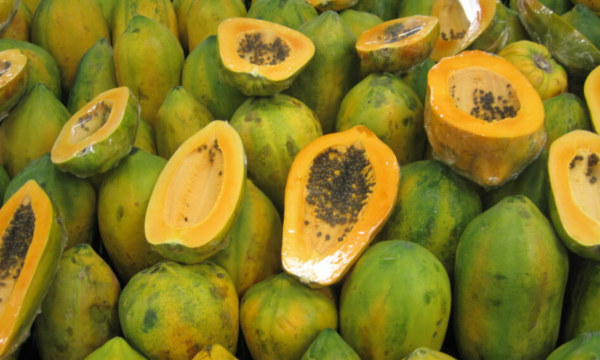
Banana plantation (© CABI)
Uganda is the world’s second largest producer of banana crop, with individuals consuming around 1.5 pounds of banana every day. Due to this major need for the success of banana crops within the country, plant pests and diseases are ever more threatening.
An example of this is with the invasion of banana bacterial wilt in the last decade, which was predicted to destroy 90% of Uganda’s banana crop at a loss of around $4 billion, however the spread was stopped after a series of expensive government interventions. With global warming threatening an increase in plant pest and disease spread on a global scale, it is not surprising that the country is considering the use of genetic modification as a solution to this issue.
Researchers have been undertaking field tests using disease resistant genetically modified (GM) bananas for years, however most countries in Africa ban farmers from commercially growing such crops. Until recently, South Africa was the only country in Sub-Saharan Africa to allow the commercial use of GM food. Uganda was added to the list of pro-GMO countries in October 2017, as parliament passed the National Biosafety Act 2017 which opens up agricultural biotechnology i.e. large scale field testing and the commercial use of GM crops.

Banana seller in a rural market (© CABI)
“Finally, banana farmers will be able to access varieties of banana resistant to bacterial wilt, and the people, especially children, can finally eat bananas and other foods rich in Vitamin A” said Patrick Nanteza who works with the National Banana Programme in Kawanda.
For many, the passing of this bill is a daunting step, as it opens up the unexamined risks of producing and consuming GM crops. For more information in regards to the debate on the use of GMO’s commercially, please see the links below:
- What is genetic modification (GM) of crops and how is it done? (The Royal Society)
- Arguments for and against GMOs (debating europe)
- Genetically Modified Crops in Africa (Arthur, G.D and Yobo K.S. In: Biotechnology and Biodiversity, pp.17-26)
Biotechnology is a key component of the solution to the global demand for food and the increasing threats to food security. Specifically within Uganda, roughly 75% of the country is involved in agriculture; however there is a nation-wide food shortage due to recent climatic events. In 2017 alone, over 70% of the country’s arable land was affected by drought and unpredictable rainy seasons.
For further information on this subject, the original article published by PRI is available here:
2 Comments
Leave a Reply
Related News & Blogs
‘Sowing the seeds’ for food security in Uganda: CABI supports training for Quality Declared Seed production
CABI has been working with Zirobwe Agali-Awamu Agribusiness Training Association (ZAABTA), the Ministry of Agriculture, Animal Industry and Fisheries (MAAIF), the National Agricultural Research Organisation (NARO), and Integrated Seed Sector Developmen…
21 May 2025





Yes Uganda could be ready but what’s the assurance of an exit strategy in case things go wrong
[…] 4. Is it time for genetically modified bananas in Uganda? (January) […]